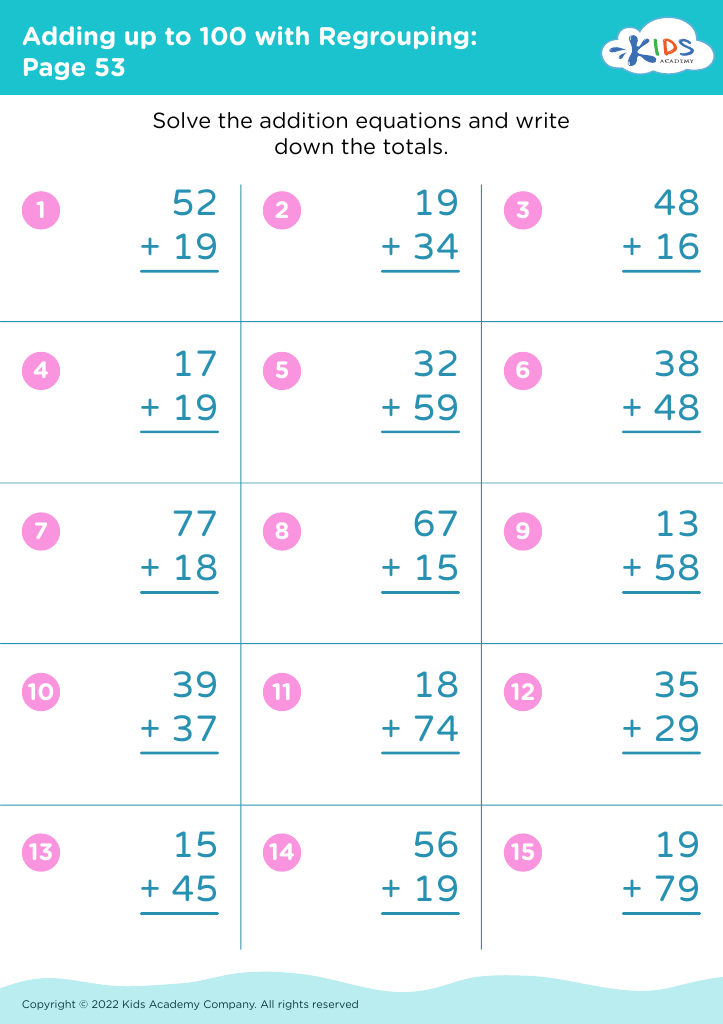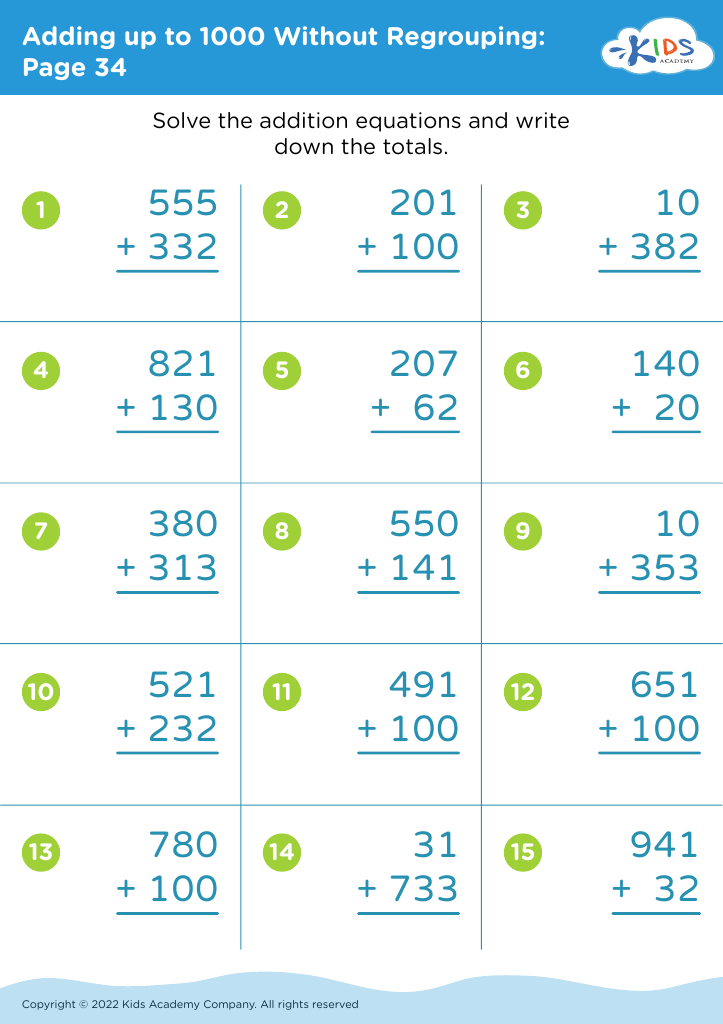Improve problem-solving Addition Worksheets for Ages 3-9
4 filtered results
-
From - To
Our "Improve Problem-Solving Addition Worksheets" for ages 3 to 9 are designed to make math fun and engaging for young learners. These worksheets help children to develop essential addition skills through a variety of interactive, age-appropriate exercises. With colorful graphics, relatable themes, and progressive difficulty levels, our printable resources focus on enhancing critical thinking and problem-solving abilities. Perfect for home or classroom use, these worksheets ensure that learning addition becomes an enjoyable and rewarding experience for your child. Equip your kids with the tools they need to excel in math while fostering a love for learning.
Parents and teachers should care about improving problem-solving skills in addition for children aged 3-9 because it lays the foundation for future academic success and critical thinking abilities. Developing strong addition skills at an early age helps children build number sense, which is essential for understanding more complex mathematical concepts later on. Early proficiency in addition also supports cognitive development by enhancing attention, memory, and logical reasoning skills.
Moreover, problem-solving in addition encourages perseverance, patience, and the ability to approach challenges with a positive mindset. These are key attributes not only in academics but in everyday life. Children learn to break down problems into manageable parts, a useful strategy in both math and other areas of learning.
Furthermore, fostering a positive relationship with math during these formative years can build confidence and diminish math anxiety. Children who view math as approachable and solvable are more likely to engage with it willingly, thereby increasing their chances of long-term success.
In addition, early math skills are often linked with improved literacy and overall academic performance. For parents and teachers, investing time in developing these skills through fun and interactive activities enriches a child's educational experience and equips them with tools they’ll use for a lifetime.










.jpg)









